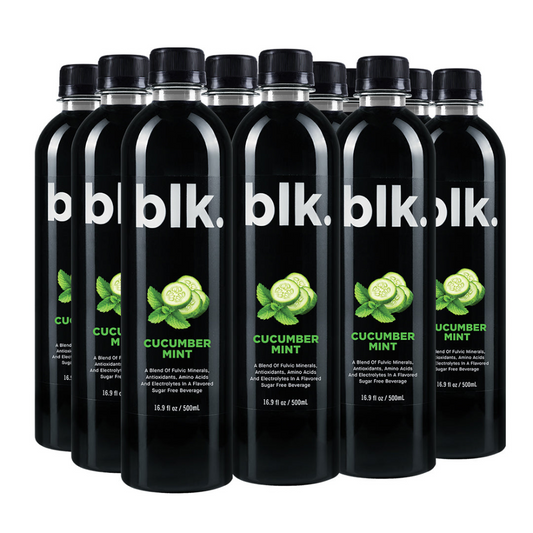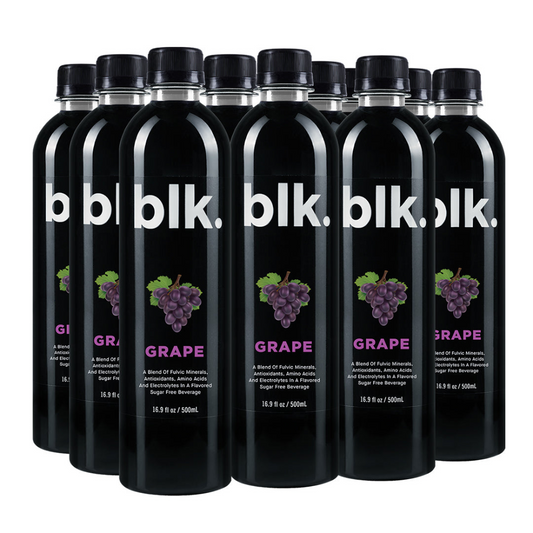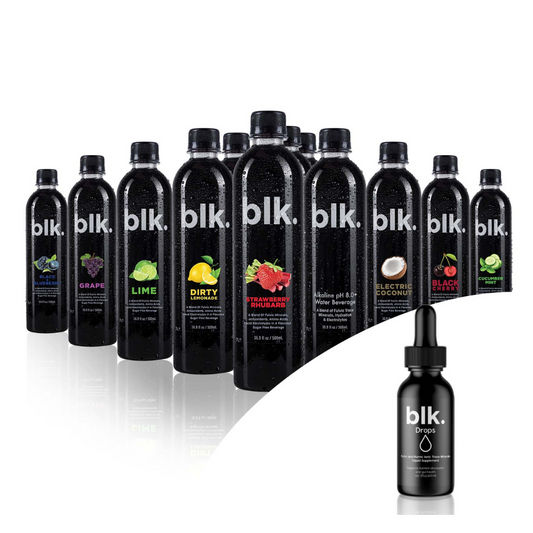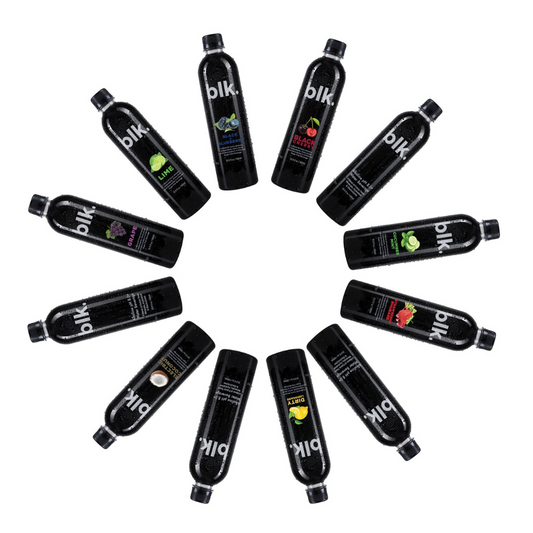
Rice Protein: A Vegan's Guide to Better Health
This Article Seeks To:
- Analyze protein requirements for vegans
- Guide vegans into different ways that rice proteins can be consumed
- Discuss the benefits of rice proteins as a protein source
- Delve into the safety of rice proteins
Identifying protein-rich foods can be challenging as vegan people only adopt a plant-based diet. A common concern for vegans or vegetarians is getting sufficient protein from their vegan diets. Where soy protein, hemp protein and pea protein are vegan alternatives, rice protein is also a popular vegan-friendly option with several health advantages.
Whether you're a vegan seeking a new source of protein or simply curious about the advantages of rice protein, Ripped.com, the leading health supplements online store in the US will arm you with the knowledge you need to make an educated decision on buying the best rice protein supplement for better health. This post will define rice protein, its nutritional profile, and how it enhances your health.
What is Rice Protein?
Rice is a type of protein that comes from brown rice. It is a plant-based protein source popular among vegans and vegetarians due to its lack of animal components. Rice protein includes all essential amino acids but still not be considered a complete protein because of its low lysine content. This protein from rice is hypoallergenic and easy to metabolize, making it an excellent alternative for anyone with food intolerances or digestive problems. Rice protein is low in fat and carbs, making it an attractive option for individuals wanting to keep a nutritious, balanced diet.
Types of Rice Protein
Several variations of rice protein are available, each having distinct characteristics. Some of the most common types include brown rice protein, rice protein concentrate, and rice protein isolate.
Brown Rice Protein
Brown rice protein includes protein and carbs and is the least processed rice protein.
Rice Protein Concentrate
Rice protein concentrate is refined to eliminate part of the carbs while increasing the concentrated protein content.
Rice Protein Isolate
Rice protein isolate is the most refined form of rice protein, comprising practically pure and isolated protein content.
The Importance of Proteins for Vegans
Everyone needs proteins as they play an essential role in different processes in the body. Some of these roles include forming and regenerating tissues and creating enzymes, hormones, and other vital compounds. People who consume animal meat naturally fulfil protein requirements since animal products are protein-packed.
On the other hand, those who do not consume animal products, in this case, vegans, need additional protein sources. This is because plant-based proteins are only found in small amounts. Since vegans do not take animal products, they need alternative protein sources to satisfy their daily nutritional needs.
Veganism and Protein Requirements
Depending on age, gender, body size, physiological states (including pregnancy, illnesses, and fitness), and possibly the environment, we all have varying protein requirements. The adequacy of proteins may not be an issue for people who take different animal products, but it needs to be considered for those who strictly consume plant-based products. Rice protein has many benefits in this day and age, making it a favored option among health-conscious people. First of all, it contains all nine essential amino acids required by human systems. As a result, it is an excellent source of protein for vegans, vegetarians, and anybody trying to enhance their protein consumption.
Advantages of Rice Protein
Rice protein is a plant-based protein that offers various benefits over other common plant-based proteins, including soy, hemp, and pea. It is a hypoallergenic protein source. Unlike whey protein, it is devoid of common allergies such as gluten and dairy.
Rice protein also contains cysteine, an amino acid that aids in forming glutathione, a potent antioxidant in the body. Rice protein is also highly digested and low in fat, making it a good alternative for anyone trying to enhance their athletic performance. Rice protein has a softer flavor than other plant-based protein sources, making it easier to include in many dishes.
Choosing the Right Rice Protein
Choosing the correct rice protein can be overwhelming, with so many options available in the U.S. market. However, there are a few key factors to consider when selecting a rice protein powder.
Nutritional Profile
It's essential to choose a product that fits your individual nutritional needs. When selecting a rice protein powder, there are several things to consider to ensure that it meets your specific nutritional demands.
- First, check the protein content, which is the primary reason for using protein powder. A good rice protein powder should have at least 20-25 grams of protein per serving.
- Secondly, the amino acid profile is also essential as it affects the body's ability to build muscle, repair tissue, and balance hormones. A high-quality rice protein powder should contain a huge number of the nine essential amino acids.
- Additionally, the powder's caloric value should be considered, especially if you are using it to lose weight. Rice protein powder typically contains fewer calories than other protein powders, such as whey or casein, making it an excellent choice for individuals looking to maintain a calorie deficit.
- Other nutritional benefits to look out for include vitamins, minerals, and antioxidants that support overall health and wellness.
Flavor Profile
When selecting a rice protein, it's important to take into account both the texture and flavor of the powder to find the most suitable option. Rice protein powders come in a variety of flavors ranging from earthy to mild. Some of the most popular and delicious flavors include vanilla, chocolate, and strawberry. Additionally, it's important to consider the texture of the powder when making your selection, as some brands have a grainier texture that is less suited for smoothies or shakes. The best options are smooth and easy to blend, such as brown rice protein powder or organic brown rice protein powder.
Solubility and Mixability
When choosing the perfect rice protein powder, it is imperative to consider its solubility and mixability. Solubility is the protein's ability to dissolve rapidly in liquids, while mixability refers to how well it blends with other ingredients, such as water or smoothie mixtures. Rice protein powder solubility and mixability may vary depending on the processing methods and the components' quality. Rice protein powder is typically easy to dissolve; however, the solubility may be influenced by the quality of the rice protein powder. Another crucial aspect to mix the protein powder correctly is to pour the powder slowly into the liquid and stir consistently to avoid clumps. Alternatively, you can use a shaker cup or blender to ensure a smooth texture.
Rice Protein and Sports Performance
Rice Protein and Athletic Performance
Recent studies have demonstrated that rice protein is a superior supplement for athletes and physically active individuals. Not only does it contain all nine essential amino acids required for muscle protein synthesis, but studies suggest that rice protein also has a higher concentration of the amino acid arginine when compared to other protein sources. Arginine is a powerful vasodilator that assist in blood flow to tissues. Some researchers believe that consuming rice protein may improve blood flow to muscle tissue, aiding muscle growth and repair.
Rice Protein and Muscle Mass
Rice protein can be a valuable supplement regularly consumed by people looking to build muscle mass. Since rice protein is a high-quality plant-based protein, it can effectively aid muscle mass development and repair. It contains leucine, one of the primary amino acids necessary for promoting muscle protein production.
Rice Protein and Workout Recovery
Rice protein has also been shown to aid in consistent workout. This vegetarian protein source can provide a fantastic substitute for whey protein in post-workout meals. Studies have indicated that consuming rice protein before or after exercise can enhance muscle development as well as hasten recovery. With its many benefits, it's no wonder that rice protein has become a popular and well-regarded choice for anyone who wants to enhance their athletic performance.
Rice Protein and Weight Management
Rice Protein and Weight Loss
Rice protein can be an effective strategy for weight control. As a plant-based protein, it has fewer calories than animal-based proteins, making it an excellent choice for people wanting to cut calories. Furthermore, rice protein is packed with fiber, which can assist you in feeling fuller for extended periods and aid digestion.
Rice Protein and Satiety
Satiety, or fullness and contentment after eating, has been linked to rice protein. This is due to rice protein's sluggish digestion, which takes longer for the system to break down and absorb. This delayed digestion can help regulate appetite and lessen hunger, making it an excellent choice for people attempting to control food cravings.
Rice Protein and Appetite Control
Rice protein has been demonstrated to help in appetite suppression. Its high fiber content might help you feel fuller for extended periods and lower your total calorie consumption. Rice protein is a beneficial option as it has a low glycemic index. This implies that it does not cause a rapid increase in blood sugar levels, which often triggers feelings of hunger and can result in overeating. Therefore, incorporating rice protein into your diet may help regulate your appetite and prevent consuming excessive amounts of food.
Rice Protein and Heart Health
Rice Protein and Cholesterol Levels
According to research, rice protein may help with cholesterol levels. Studies have shown rice protein to maintain total cholesterol, LDL or "bad" cholesterol, and triglyceride levels in the blood. This is most likely because rice protein contains bioactive peptides, which may help block the enzymes responsible for cholesterol formation in the body.
Rice Protein and Blood Pressure
According to some studies, rice protein may benefit blood pressure. Studies have proven that rice protein helps with systolic and diastolic blood pressure in persons with hypertension. This is because rice protein contains peptides proven to have antihypertensive properties.
Rice Protein Recipes and Meal Ideas
Rice Protein Powder
Rice protein powder is an excellent plant-based protein source that can be utilized in several dishes. Rice protein powder may be used to cover baked tofu or veggies or added to soups or stews for a savory dinner.
Rice Protein Shake
Rice protein powder may be used with non-dairy milk and sugar to form a protein-rich pudding. Adding rice protein powder to smoothies for a quick and simple breakfast is another protein shake recipe option for rice protein powder.
Rice Protein Snack
Rice protein powder can also be combined with nut butter, oats, and other ingredients to form protein bars or energy balls. Rice protein powder has unlimited recipe options and may help you improve your protein consumption in a pleasant and simple way.
Rice Protein Baked Goods
Rice protein powder works well in baked items such as muffins, cookies, and bread. It provides protein without changing the flavor or texture of the finished product. Replace a part of the flour in baked items with rice protein powder to utilize it. For example, in a dish that calls for 2 cups of flour, you might substitute 1/4 to 1/2 cups of flour with rice protein powder. Make any necessary adjustments to the liquid components to get the required batter consistency.
Rice Protein Desserts
Rice protein powder may also add protein to pastries without compromising flavor. Rice protein powder may produce protein-rich treats such as cookies, cakes, and energy balls. For example, mixing rice protein powder, almond flour, cocoa powder, and your preferred sweetener might make chocolate protein cookies. You could also prepare a protein-rich icing with rice protein powder, non-dairy milk, and a sweetener.
Rice Protein Supplement Forms
When selecting an appropriate rice protein supplement, it is essential to consider the form that will work best for you. In most cases, rice protein is available in dry powder form, which is ideal for mixing into smoothies and baked goods, as well as in capsule or tablet form, which is ideal for on-the-go use.
Rice Protein Supplement Flavors
Rice protein supplements are available in several tastes, including vanilla, chocolate, and strawberry. Consider your tastes and choose a supplement that comes in those flavors. Studying the ingredient list is vital to ensure that other tastes are natural and not synthetic.
Rice Protein Supplement Brands
In terms of brands, it is critical to select a reputed brand that contains high-quality ingredients. Look for supplements that include organic rice and avoid those that contain artificial sweeteners, flavors, or preservatives. Read user reviews to see what others are saying about the product. This might give you an indication of how effective and tasty the product is. Before beginning any new supplement regimen, contact a healthcare practitioner to confirm that it is safe and appropriate.
Rice Protein Supplement Dosage
The amount of rice protein supplement you should take is determined by your objectives and demands, as well as your diet and degree of physical activity. Adults should ingest 0.8 grams of protein per kilogram of body weight daily. However, this might vary based on age, gender, and activity level. When taking a rice protein supplement, read the label and stick to the advised serving amount.
Rice Protein Supplement Timing
When determining when to take your rice protein supplement, remember your objectives and needs. For example, consuming a protein supplement within 30 minutes of a strength training activity may be helpful if you're aiming to gain muscle. If you're utilizing a rice protein supplement as a meal replacement, you should take it in the morning or at lunch to ensure you have enough energy throughout the day.
Conclusion
Rice protein supplements are typically considered safe for most individuals, but selecting a high-quality product from a trustworthy provider is critical. It's also vital to think about any allergies or dietary limitations you may have, as some rice protein supplements may include soy or gluten. Furthermore, overeating protein can cause dehydration, renal difficulties, and digestive pain, so sticking to the appropriate amounts is critical. If you have any questions regarding the safety of a rice protein supplement, speak with a healthcare expert before using it.
Frequently Asked Questions
-
Is rice protein gluten-free?
-
I am allergic to soy or nuts, can I consume rice protein?
-
Does Rice Protein have any disadvantages?
-
How does rice protein impact sustainability?
-
How do you make rice protein taste better?




